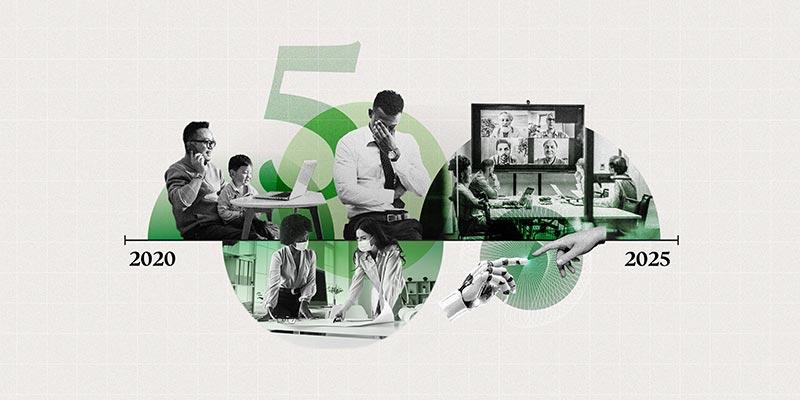Workplace
Explore Gallup's research.

Full-time U.S. employees work fewer hours than five years ago, driven by declining engagement, shifting work-life priorities and employee burnout.

Gallup celebrates 70 winning organizations for their commitment to creating an exceptional workplace culture where employees thrive.

COVID-19 created a tectonic shift in how workplaces operate. Gallup research reveals 12 ways the pandemic transformed how great work -- and leadership -- gets done.

Women's employment preferences often conflict with their current arrangement. See what organizations can do to retain women with top talent.

Fifty-one percent of employees are exploring new jobs. Top considerations for making the leap include personal wellbeing, pay, stability and strengths-based work.

Hope is powerful -- and it's what people need most consistently from the leaders in their lives. See what this means for current and future leaders.

Most employees aren't proud of the quality of the products and services their organization offers. See how it directly affects customer satisfaction.

As U.S. satisfaction with democracy has declined to a near-record low, Gallup and Kettering commit to understanding and ultimately reversing this trend.

Since last year, 3.2 million fewer employees felt enthusiastic about and involved in their work, matching a figure not seen in the U.S. since 2014.

U.S. employees who strongly agree that they are treated with respect at work has returned to the record low of 37%, first recorded in 2022.

The workplace has not returned to pre-pandemic normalcy, and leadership challenges abound in 2025. But each of these challenges has a solution.

Examine how the relationship between work and life can impact women's career trajectories and overall wellbeing.

A hidden but growing discontent among employees is putting organizations at risk.

Even with the passing of the pandemic crisis, employee wellbeing continues to erode. Employee engagement makes a difference.

Demand for new skills is growing. Yet organizations don't adequately encourage employee upskilling. Three actions resolve this challenge.

Poor wellbeing affects the performance of employees and organizations alike.

Most employees don't believe employers are fully committed to improving their mental health and wellbeing. Three steps can repair this disconnect.

Want broader AI buy-in at your organization? Consider the role culture plays in your AI strategy.

To be effective, feedback must provide value to employees. Incorporating recognition elevates feedback and drives workplace outcomes.

Managers are feeling more connected to their company culture. It's a sign to consider their outsized influence on your workplace culture.